If youre wondering why you need this new edition of Environmental Policy and Politics, here are five good reasons!
1. This new edition assesses the Obama administrations initiatives on energy policy and climate change, budgetary decisions, and executive agency appointees that will affect the future of environmental politics.
2. A new analysis examines the controversies caused by major policy decisions of the George W. Bush administration.
3. All chapters incorporate new case studies and vignettes drawn from recent events to introduce the material and highlight key issues.
4. Summaries of scientific studies, government reports, and policy analyses have been updated to reflect the most current research and information in the field.
5. The writing and the flow of material have been improved throughout to make the text more accessible and useful to students.
Environmental Policy and Politics
FIFTH EDITION
Michael E. Kraft
University of Wisconsin, Green Bay

Editor in Chief: Eric Stano
Editorial Assistant: Elizabeth Alimena
Marketing Manager: Lindsey Prudhomme
Production Manager: Clara Bartunek
Project Coordination, Text Design, and Electronic Page Makeup:
Integra Software Services, Ltd.
Cover Designer/Manager: Mary Seiner
Cover Image: Getty Images, Inc.
Printer and Binder: Courier Companies, Inc.
Copyright 2011, 2007, 2004 by Pearson Education, Inc.
All rights reserved. No part of this publication may be reproduced, stored in a retrieval system, or transmitted, in any form or by any means, electronic, mechanical, photocopying, recording, or otherwise, without the prior written permission of the publisher. Printed in the United States.
Library of Congress Cataloging-in-Publication Data
Kraft, Michael E.
Environmental policy and politics/Michael E. Kraft.5th ed.
p. cm.
Includes bibliographical references and index.
ISBN-13: 978-0-205-74537-1 (alk. paper)
ISBN-10: 0-205-74537-7 (alk. paper)
1. Environmental policyUnited States. 2. United StatesPolitics and government20012009. 3. PollutionGovernment policyUnited States. I. Title.
GE180.K73 2011 363.700973dc22
2009048723
 www.pearsonhighered.com www.pearsonhighered.com
| 1 2 3 4 5 6 7 8 9 10 CRS 13 12 11 10
ISBN-13: 978-0-205-74537-1
ISBN-10: 0-205-74537-7 |
Contents
CHAPTER 1
Environmental Problems and Politics
CHAPTER 2
Judging the State of the Environment
CHAPTER 3
Making Environmental Policy
CHAPTER 4
The Evolution of Environmental Policy and Politics
CHAPTER 5
Environmental Protection Policy: Controlling Pollution
CHAPTER 6
Energy and Natural Resource Policies
CHAPTER 7
Evaluating Environmental Policy
CHAPTER 8
Environmental Policy and Politics for the Twenty-First Century
Preface
The 2008 presidential election launched one of the most striking periods of environmental policy change in U.S. history. For eight years, the administration of George W. Bush was strongly criticized by environmentalists for its reluctance to tackle global climate change, its misuse or disregard of science, and for environmental protection and natural resource policies that strongly favored economic development over public health and resource conservation. During the 2008 campaign, Barack Obama pledged to chart a sharply different course of action, and that policy shift was evident even before he was sworn into office on January 20, 2009. His appointees to critical administrative posts, such as Environmental Protection Agency (EPA) administrator, energy secretary, interior secretary, science adviser, and a new White House energy and climate change czar, were announced in December 2008, and they confirmed that the nation would see a stronger commitment to environmental policy and more action on climate change than was evident under his predecessor.
In his inaugural address in January, Obama promised to restore science to its rightful place and work to harness the sun and the winds and the soil to fuel our cars and run our factories. The new direction in environmental policy also was clear in Obamas massive economic stimulus package which Congress approved in February 2009. It included tens of billions of dollars for energy efficiency, research and development of renewable energy sources, and support for mass transit, among other actions.
All this was good news for environmentalists, who cheered the administrations new policy agenda. Yet environmental economists and policy analysts of all persuasions would add that the time is ripe for even more significant changes in U.S. environmental policies. Many of those policies, including the Clean Air Act, Clean Water Act, and Endangered Species Act, are nearly 40 years old and they have remained substantially unchanged since their initial approval despite questions about their effectiveness, efficiency, and fairness that date back at least to the 1980s. Dozens of major studies have offered trenchant criticisms of the policies and have identified promising new approaches and methods. Indeed, many policy changes already have been adopted at the state and local level, where innovation and experimentation are far easier than at the federal level, and through an array of administrative and judicial actions that required no approval by Congress. But the nation needs much more than this to deal with twenty-first-century problems.
Following the severe recession of 20082009, it is particularly important to take up the challenge of environmental policy renewal at the federal level and to steer the nation toward a more sustainable path. Future achievements depend on securing essential public and political support at a time of competing policy priorities, designing policies that best fit the problems faced, and implementing them effectively. This would be true even if the federal and state governments were flush with funds. But addressing these needs is even more critical in light of the soaring national debt and extraordinary federal budgetary deficits that will be with us for years to come.
If anything, environmental challenges at the global level are even more daunting. The world must learn how to respond creatively and effectively to the risks of global climate change and many other equally complex and difficult issues such as the destruction of forests and soils, the loss of biological diversity, and a surging human population that will likely rise to over 9 billion by 2050. No responsibility of government and society will be more difficult over the next generation than accommodating the level of economic development needed to meet human needs and aspirations while simultaneously averting devastating effects on the environmental systems that sustain life.
In industrialized nations such as the United States, this new environmental agenda makes clear the imperative of integrating environmental protection with other social and economic activities, from energy use and transportation to agriculture and urban planning. We can no longer afford to think of environmental policy as an isolated and largely remedial activity of cleaning up the residue of societys careless and wasteful habits. Emphasis must be placed on prevention of future harm through redesign of economic activities around the concept of sustainable development.
Next page
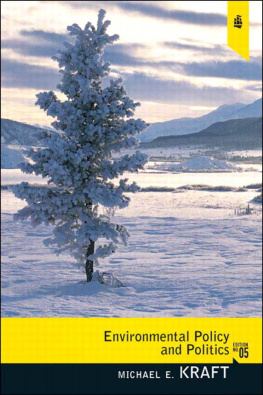
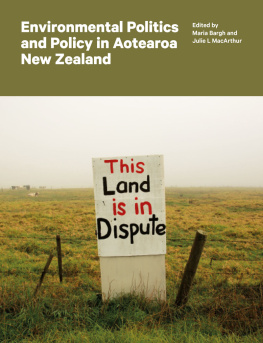
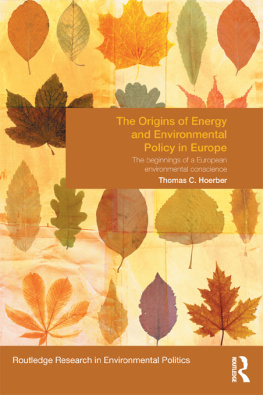
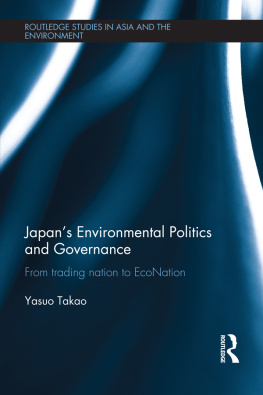
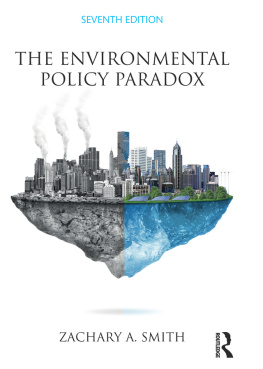
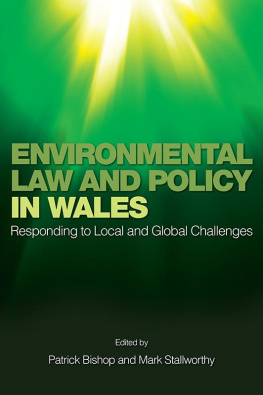
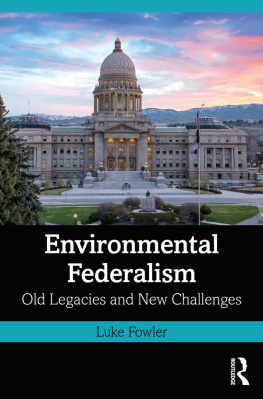
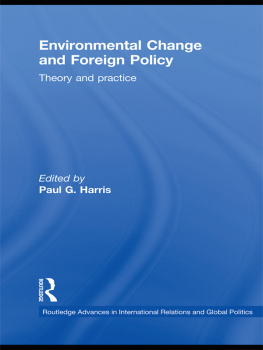
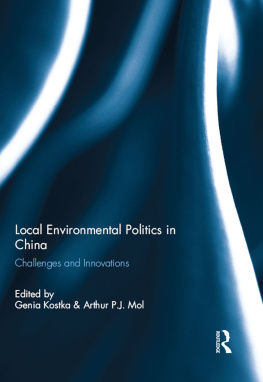
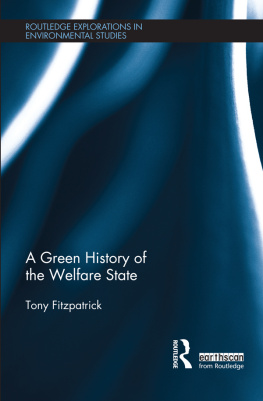


 www.pearsonhighered.com
www.pearsonhighered.com